XIV International Conference on Higher Education Took Place at HSE University
This year’s conference topic was ‘Student Experience at a Modern University: from an Enrollee to a Graduate’. Over the three days, researchers from Russia and other countries discussed the individual and institutional factors that determine students' educational experience, the impact of this experience on educational performance, and its influence on labour market success. The conference took place from October 25–27 and featured over 90 presentations.
In her opening speech, Vice Rector Elena Odoevskaya explained why student experience was chosen as the key topic of this year’s event.
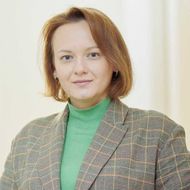
Elena Odoevskaya
‘Students are the main reason why a university erects walls, creates programmes, and establishes partnerships with industries. They are the ones who will develop our country and others—among the conference participants are representatives from China, the UAE, Sri Lanka, and other countries. Therefore, it is crucial to understand the student experience within a university, their interactions with key stakeholders, and their decision-making process when selecting a university and future career path.’
Evgeniy Terentev, Director of the HSE Institute of Education, described the conference as a friends’ reunion. Fourteen years ago, when the conference was first founded, it was a small-scale affair that none would have predicted would eventually span three days and receive 200 applications.
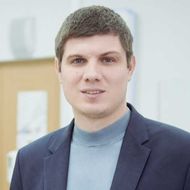
Evgeniy Terentev
‘One of the primary objectives of the conference over the years has been to foster a research-oriented atmosphere for addressing higher education issues. While there are numerous platforms available for discussing political aspects of higher education development, there is a dearth of opportunities for discussions of evidence-based research. I propose that we take it as a rule to conduct evidence-driven conversations and substantiate our statements and findings with relevant data during the course of these three days.’
Consortia
The first roundtable, which took place on October 25, was dedicated to scientific and educational consortia formed by universities and businesses, and the evaluation of the effectiveness of their interactions.
Elena Odoevskaya moderated the event. She talked about different approaches to the concept of a consortium. For example, in the Priority 2030 programme, it is described as ‘a temporary voluntary association of universities with other organisations to coordinate activities and consolidate resources when implementing breakthrough projects that ensure the scientific and technological development of the country.’
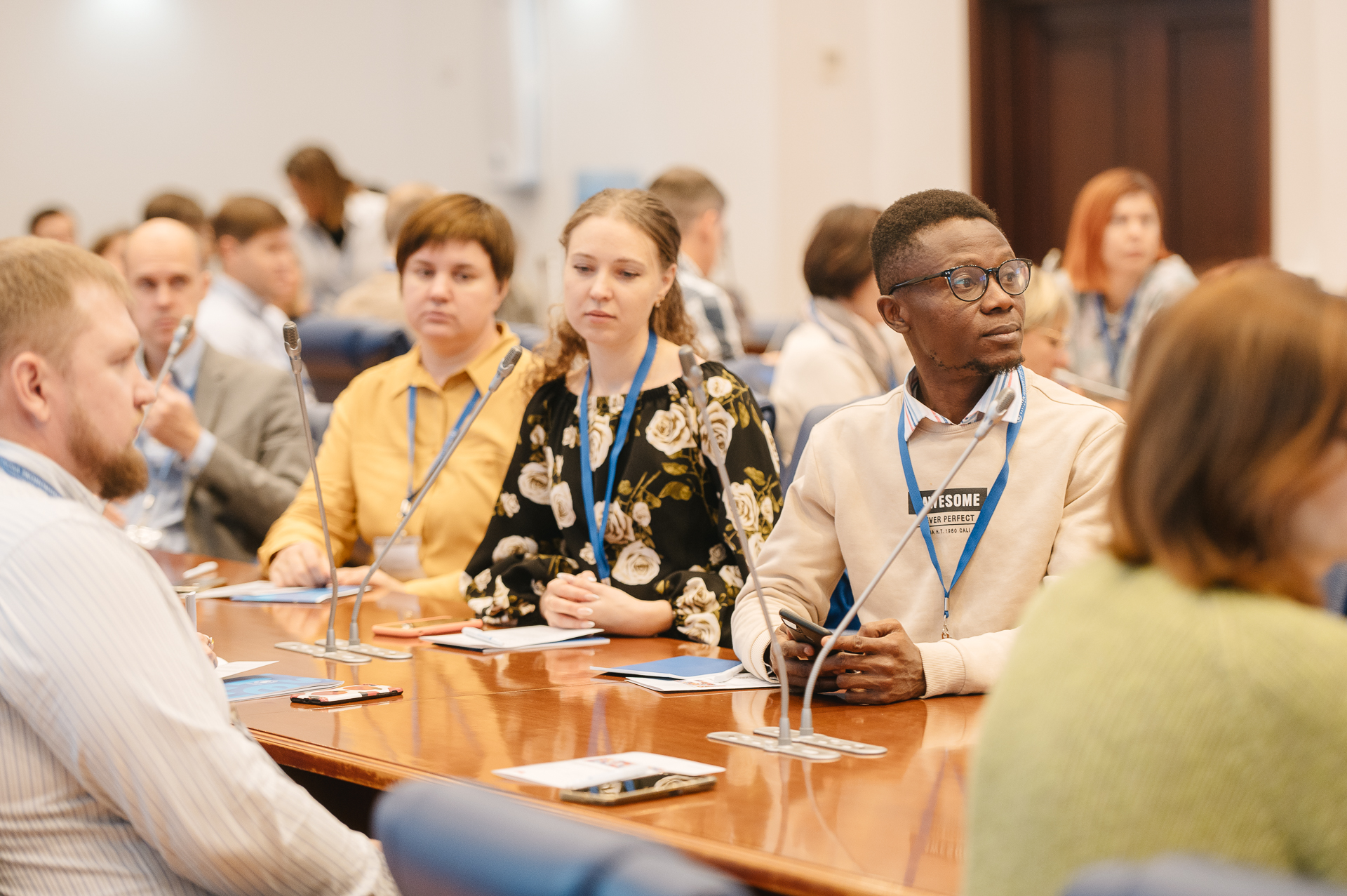
Tatiana Zhdanova, Deputy Director at Sociocentre, told the audience that the Priority 2030 programme involves 132 universities, which have created 390 consortia with over 3,000 partners. These consortia are aimed at solving complex issues for the benefit of regions, industries, and societies, while universities get involved in these activities and attract young people to them.
Anna Stepanova, Deputy Vice President for Educational Projects at VK, spoke about cooperation with universities from the perspective of businesses: for them, the important aspects are the social part of the ESG agenda, interaction with the consumers of their products, and headhunting students. However, she believes that there is still a lack of good practices and partnerships based on mutual interest and benefit, rather than being a burden to businesses or universities.
HSE Vice Rector Irina Martusevich spoke about HSE University’s experience of employer relations and facilitating access to businesses’ young target audiences.

Irina Martusevich
HSE Vice Rector Irina Martusevich spoke about HSE University’s experience of employer relations and facilitating access to businesses’ young target audiences. ‘We give students and businesses an opportunity to shorten the initial introduction period thanks to deep integration in our projects and extracurricular activities,’ she said. Over 65% of HSE students gain working experience during their studies, which helps them make better-informed employment decisions upon graduation.
Altynai Adzhikova, Vice Rector at MTUCI, spoke about her university’s experience of industry relations, while Roman Laas, Director of the Educational Product Centre at Tomsk Polytechnic University, told the audience about ‘Big Tomsk University’, a consortium of universities and academic institutes located in Tomsk and centred around ‘on par’ interaction. The roundtable discussion finished with a discussion of the impact of consortia on student experience.
Campuses
The next conference event was a panel discussion on ‘The Possibility and Reality of University Campus Projects.’ Evgeny Terentev, who moderated the discussion, said that it follows on from the roundtable on consortia, since various institutions take part in the evolution of new campuses. In Russia, several projects are currently underway in which a single campus is created by the city for several higher education institutions. ‘The idea behind a campus is to create a comfortable environment for achieving high educational and research performance, and this requires new solutions and business models,’ he added.
Taisiya Pogodayeva, Director of BIM Campus, a company that implements the Big Ivanovo Manufacture (BIM) project as part of a concession agreement, said that the topic of campuses is much more complex, since in consortia ‘there’s no need to share properties.’ She believes that the creation of a campus gives universities a ‘chance to reinvent themselves,’ while for cities, it is a tool of spatial development.
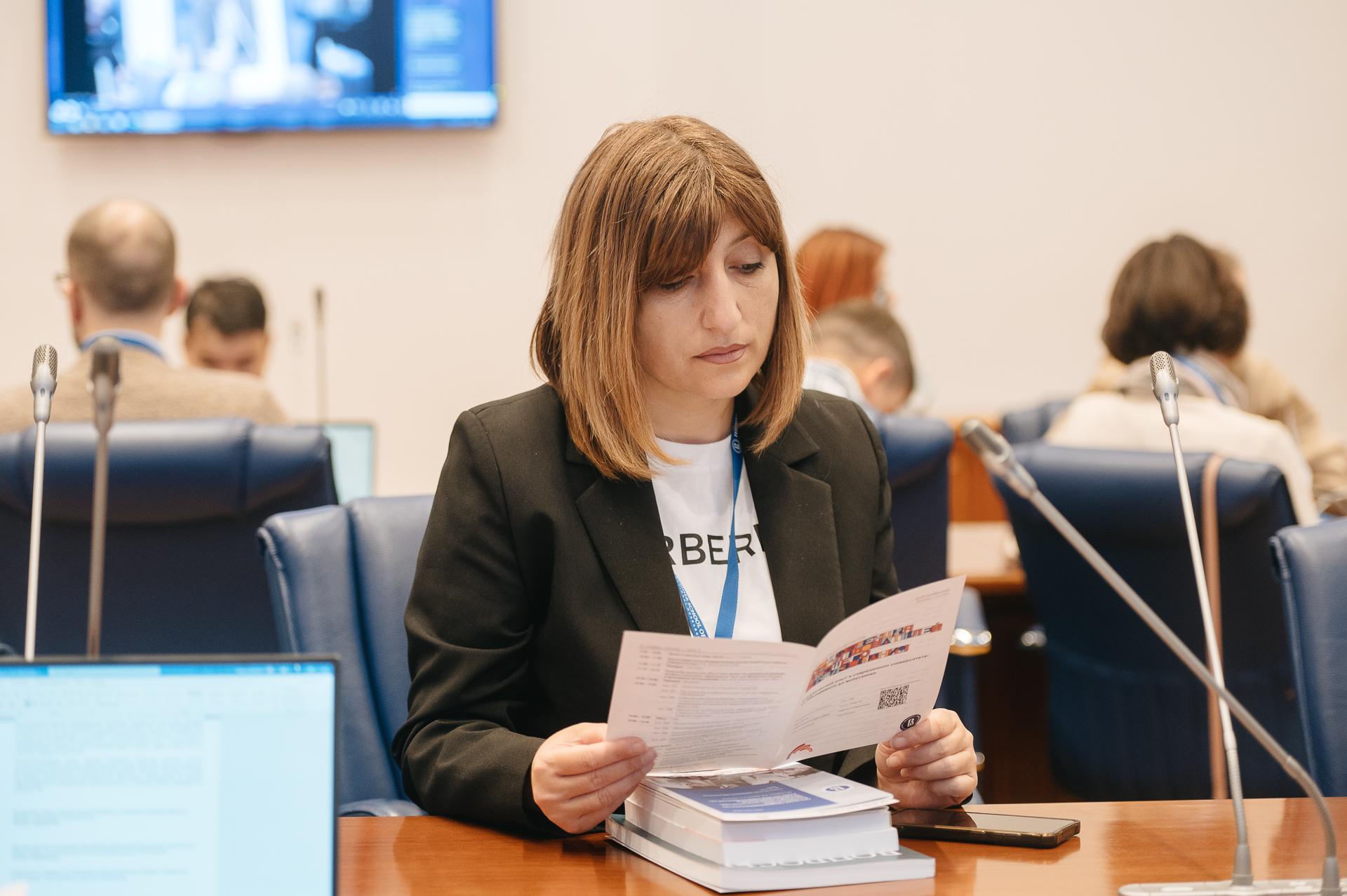
Conference participants from various regions of Russia spoke about creating campuses in their respective cities: Sergey Kotsukon, Deputy Minister of Digital and Technological Development of Sakhalin Oblast; Alexandra Lebedeva, Deputy Prime Minister of Kamchatka Krai; Vitaly Litke, Deputy Minister of Education and Science of Chelyabinsk Oblast; Yury Marfing, Acting Rector of Pacific University in Khabarovsk.
In Sakhalin, creating a campus is not seen as at a profit-making project. ‘For us, it is an opportunity to develop the region’s infrastructure and to modernise our university,’ explained the region’s representative.
For Petropavlovsk-Kamchatsky and Ivanovo, campuses are one of the key objects in the cities’ master plans, given their central location.
Before the campus project, universities in Chelyabinsk had not interacted with each other or with regional authorities. The project is also joined by industry partners who offer venue rental, collaboration ideas, and more.
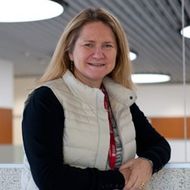
Magdalena Gaete
Magdalena Gaete, Senior Research Fellow at the Laboratory for Reputation Management in Education at HSE University-St Petersburg, spoke about global trends in campus development. There have been no cases in Europe or the USA when a decision was made to first create one campus for several universities, and only after that did the universities start cooperating. ‘A unique experiment is underway in Russia, and we will follow its progress,’ Evgeny Terentev concluded.
See also:
Updated Facts and Figures and Dashboards Now Available on HSE Website
The HSE Office of Analytics and Data Management, together with the Visual Communications Unit, has developed a new Facts and Figures about HSE University page on the HSE website. In addition, all university staff now have access to a dashboard with the updated indicators of the Priority 2030 programme.
HSE to Entrust Routine CPD Programme Development to AI
HSE University, together with the EdTech company CDO Global, is launching AI-based constructors to streamline the design of continuing professional development (CPD) courses. The new service will automate the preparation of teaching materials and assessment tools, significantly reducing the time and resources required of lecturers and instructional designers.
‘Territory of the Future. Moscow 2030’ Forum-Festival to Feature Innovative Projects from HSE Graduates
Until September 14, 2025, the Russian capital is hosting a large-scale forum-festival called ‘Territory of the Future: Moscow 2030’ —a space for technology, science, and innovation. This event showcases cutting-edge developments in medicine, astronautics, and the digital economy. HSE Art and Design School is participating in the festival with two graduate projects in Product and Industrial Design.
‘The Goal of Modern Geography Is To Digitise Expert Knowledge and Integrate It with Big Data’
The importance of geographical science is increasing, as is the demand for education in this field. Since 2020, application numbers for Bachelor’s programmes at HSE University’s Faculty of Geography and Geoinformation Technology have climbed by 30%, while interest in Master’s programmes has also expanded, with applications up 10–15%. Nikolay Kurichev, Dean of the Faculty, spoke about this at a press conference hosted by MIA Rossiya Segodnya.
HSE Shares Its Experience of Urban Strategies at International Summer School in China
In the context of intensifying global geopolitical and technological competition, leading Chinese educational institutions—Zhejiang International Studies University and Peking University—organised an International Summer School. Their joint programme focused on studying global, regional, and urban development strategies. The HSE Faculty of Urban and Regional Development took part in this event.
Scientists Develop Effective Microlasers as Small as a Speck of Dust
Researchers at HSE University–St Petersburg have discovered a way to create effective microlasers with diameters as small as 5 to 8 micrometres. They operate at room temperature, require no cooling, and can be integrated into microchips. The scientists relied on the whispering gallery effect to trap light and used buffer layers to reduce energy leakage and stress. This approach holds promise for integrating lasers into microchips, sensors, and quantum technologies. The study has been published in Technical Physics Letters.
‘Our Result Was Recognised Not Only Within the Project Defence but Also on International Scale’
This year, the European AI Conference (ECAI 2025) accepted an article titled ‘Multi-Agent Path Finding for Large Agents is Intractable’ by Artem Agafonov, a second-year student of the Applied Mathematics and Information Science Bachelor’s programme at HSE University’s Faculty of Computer Science. The work was co-authored by Konstantin Yakovlev, Head of the Joint Department with Intelligent Technologies of System Analysis and Management at the Federal Research Centre ‘Informatics and Management’ of the RAS and Associate Professor at the Faculty of Applied Sciences. In the interview, Artem Agafonov explained how he came up with the idea for the article and how he was able to present it at an A-level conference.
HSE Scientists Test New Method to Investigate Mechanisms of New Word Acquisition
Researchers at the HSE Centre for Language and Brain were among the first to use transcranial alternating current stimulation to investigate whether it can influence the acquisition of new words. Although the authors of the experiment have not yet found a link between brain stimulation and word acquisition, they believe that adjusting the stimulation parameters may yield different results in the future. The study has been published in Language, Cognition and Neuroscience.
Twenty vs Ten: HSE Researcher Examines Origins of Numeral System in Lezgic Languages
It is commonly believed that the Lezgic languages spoken in Dagestan and Azerbaijan originally used a vigesimal numeral system, with the decimal system emerging later. However, a recent analysis of numerals in various dialects, conducted by linguist Maksim Melenchenko from HSE University, suggests that the opposite may be true: the decimal system was used originally, with the vigesimal system developing later. The study has been published in Folia Linguistica.
HSE University–St Petersburg and Universiti Teknologi Malaysia Release First Book of Mirror Laboratory
Malaysia hosted the AHIBS 'Weaving Horizons for Sustainable Impact' international conference, which featured the presentation of the first Russian–Malaysian book of research articles.


